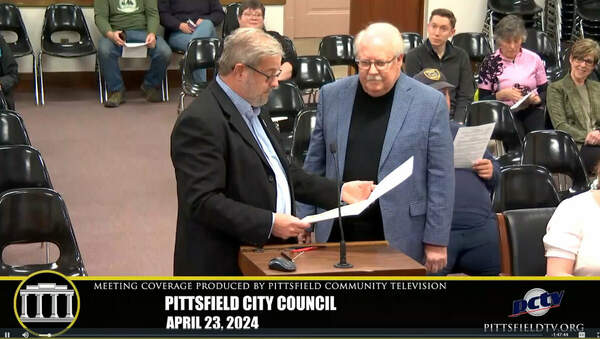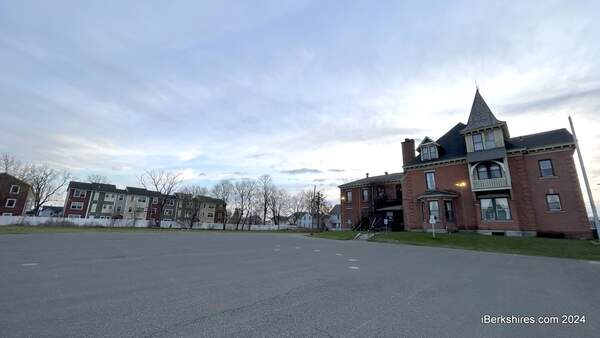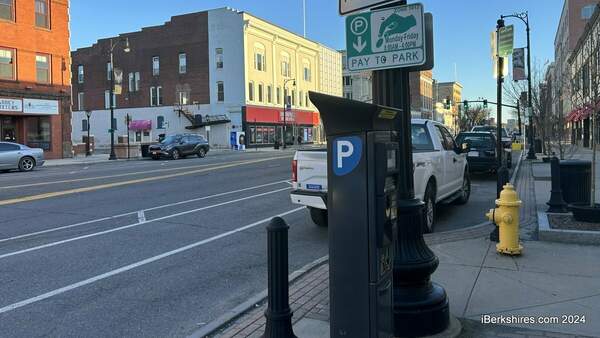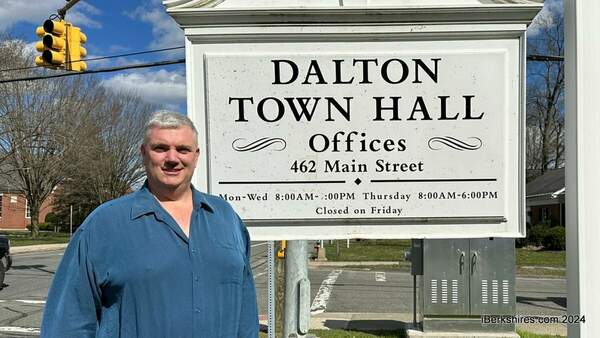Pittsfield Flower Shop Granted 10-year Demolition Reprieve
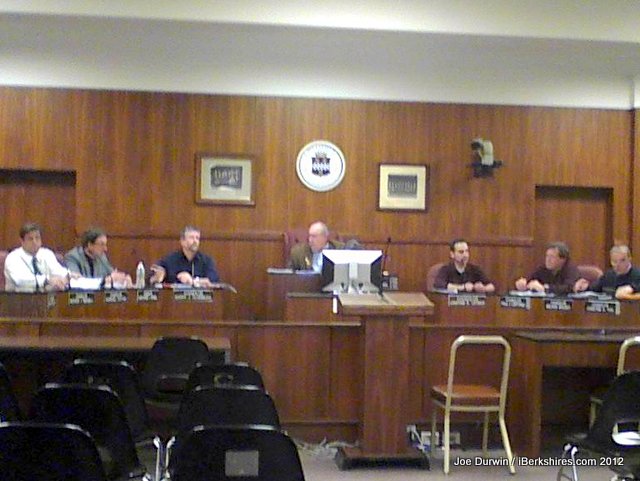 The Conservation Commission approved a 10-year delay on demolishing the Berkshire Flower Co. building to create a greenway. |
The commission opted 7-1 in favor of altering a decades-old arrangement under which the strip of land on Routes 7 and 20 occupied by Berkshire Flower Co. was to become a "greenway" space adjacent to the highway.
The agreement predates the current owner of the parcel in question, Patriot Suites, and has drawn protest in the past because its execution would require the removal of the building located at 910 South St. At one time The Quarry, one of Pittsfield's earliest fast-food restaurants, the parcel now houses Berkshire Flower Co.
Owner Bridget Brown, who has operated her business there since 1987, was previously granted a one-year extension by the City Council, with the support of then Mayor James Ruberto.
With the possibility of eviction once again looming, Brown along with a large number of loyal customers have lobbied extensively to be permitted to stay, via local talk radio, social media, an online petition and public input at city meetings.
Stan Parese, attorney on behalf of Patriot Suites, described his client as "neutral" on the conservation restriction agreement.
"If Ms. Brown wants to continue her business at that location, my client has no particular desire to prevent her from doing that," said Parese, who said his client felt that the suggestion of a 10-year extension was appropriate.
"It allows us not to have to keep coming back here on this issue, it allows her to have more breathing room relative to her business."
The 10-year reprieve for the building is contingent on the continued tenancy of Berkshire Flower Co. In the event the business vacates for any reason prior to 10 years, the agreement will be revisited and the structure likely demolished.
One commissioner, Bruce Andrews, expressed doubts about commission's legal ability to amend the restriction.
"As a conservation commissioner whose job it would be to oversee a conservation restriction, I don't see supporting something that might ultimately have to be determined in a court of law."
City Solicitor Kathleen Degnan pointed out that because this agreement was a private conservation restriction, and not a public one, it was not bound by the same Article 97 constraints and allowable if the parties concerned had no objection.
"There is no legal impediment to passing this amendment," Degnan told the commission.
"Ten years is great, much better than five," Brown told iBerkshires following the decision, expressing her gratitude to the commission and Mayor Daniel Bianchi, who submitted the request for the extension last month.
Tags: conservation commission, conservation restriction, floral shop,

